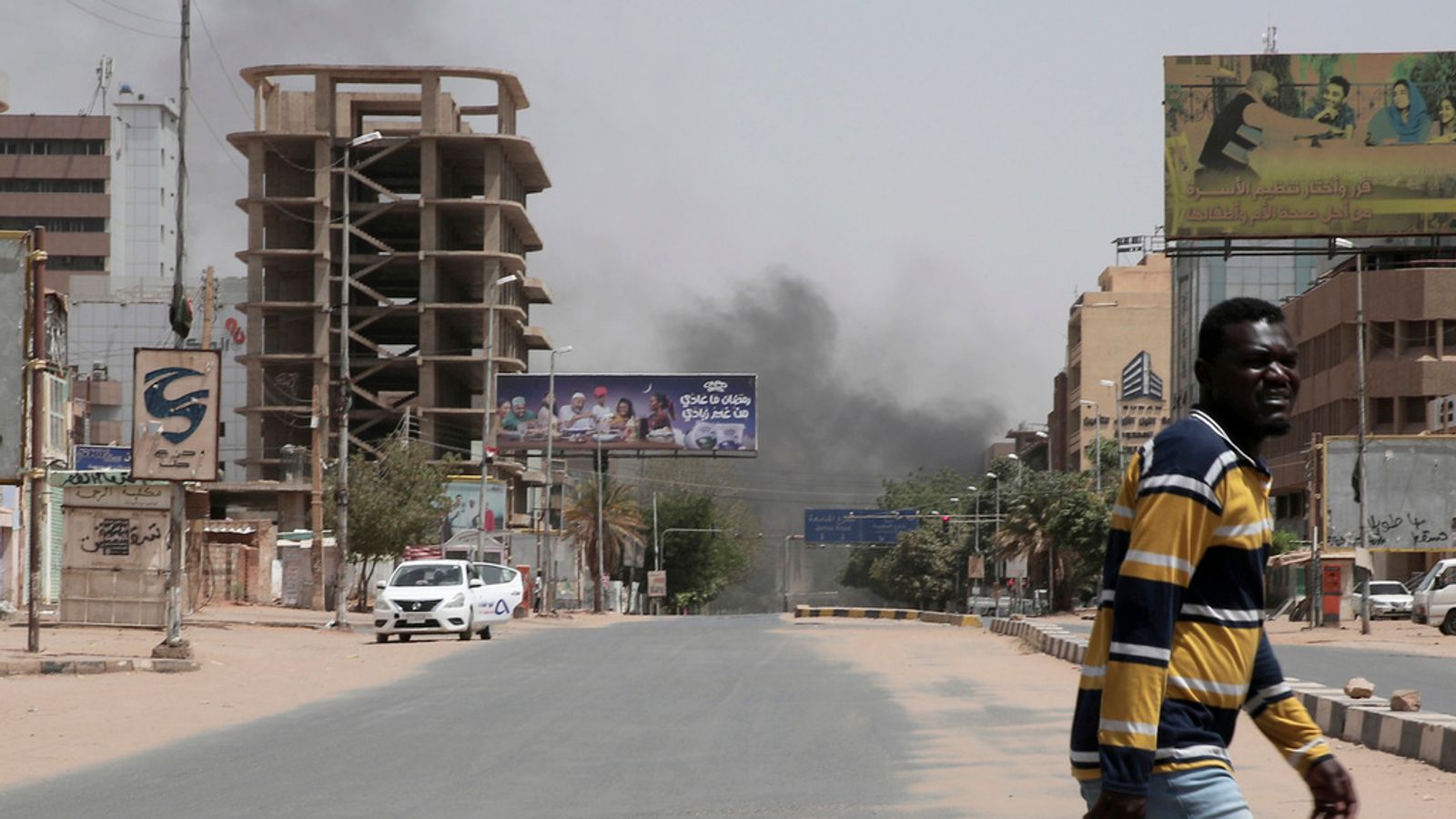Sudan: Why has violence erupted, who are the RSF and where are the army and paramilitary fighting?

Fighting erupted in Sudan on Saturday as the army and paramilitary forces clashed, leaving at least 56 people dead and hundreds injured.
They were the first clashes between the forces since 2019 but rose out of a long-running tussle for power.
Here is what you need to know.
Who are the main players?
On one side you’ve got Sudan’s army, headed by General Abdel Fattah al-Burhan.
He has been the country’s de facto president since a military coup in October 2021.
On the other is paramilitary group the Rapid Support Forces (RSF), the partner-turned-rival of the military.
The RSF is led by general Mohamed Hamdan Dagalo, better known as Hemedti. He is the deputy head of Sudan’s ruling Sovereign Council.
The two sides came together to oust former leader Omar al-Bashir in 2019 but there have been long-running disagreements over how the country should be run.
Advertisement
Since the clashes started both sides have claimed to be in control of strategic locations, including the presidential palace, airports and air bases.
Please use Chrome browser for a more accessible video player
1:12
What’s going on in Sudan?
Why has violence erupted now?
Saturday’s violence erupted out of tensions over the transition from military to civilian rule.
Things escalated in the days prior as RSF troops were deployed around the country.
In a rare statement in the early hours of Thursday, the army said the mobilisation represented a “clear violation of law”.
Central to the tension was a disagreement between the army and the paramilitary over how and when the RSF should be integrated into the military.
The army wanted the transition to happen within two years while the RSF said it would take 10 years.
The merger is a key condition of a framework deal agreed in December that would see power shifted to civilians.
The agreement was supposed to be signed on 1 April, but it has been delayed because of failed talks.
Read more:
Why tensions in Sudan could escalate into ‘all-out civil war’
Civilians among 56 killed during heavy fighting in Sudan
Please use Chrome browser for a more accessible video player
0:55
‘Tension had been boiling’ in Sudan
Where is the fighting happening?
The fighting began at a military base south of the capital Khartoum, with both sides accusing the other of initiating attacks.
Clashes then spread across the city, including around the military’s headquarters, the airport and the presidential palace.
Witnesses have reported gunfire in many parts of the country, including heavy exchanges of gunfire in the northern city of Merowe and clashes in the Darfur cities of El Fasher and Nyala.
Who are the RSF?
The RSF is made up of about 100,000 troops and evolved from so-called janjaweed militias that fought in the Darfur conflict in the 2000s.
The RSF has long been accused of atrocities linked to the Darfur conflict.
In 2017, a law legitimising the RSF as an independent security force was passed.
Transition to democracy
Former president Omar al-Bashir was ousted in 2019 following months of protests against his three-decade authoritarian rule.
He was convicted of corruption and money laundering and accused by the International Criminal Court of war crimes and genocide, linked to the bloody conflict in Darfur.
A joint military-civilian government was established after he was toppled but that was overthrown in the 2021 coup.
The coup put the army back in charge, but it faced weekly demonstrations, renewed isolation and deepening economic woes.